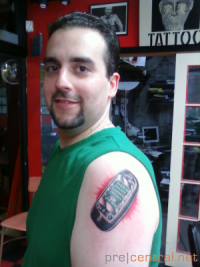
The folks at
Sonic Boom recently released their latest iPhone game -
iZombie: Death MarchI downloaded the game last night and had a great time killing lots and lots of Zombies. The game is very straight forward - you play as a lone gunman surrounded by Zombies who come at you from every angle. Simply touch the screen where you want to shoot and 'pow!' the Zombies go down.
There are 6 missions or chapters to choose from:
1. Point Blank
2. Guardian
3. Bunker
4. Graveyard
5. Runaway
6. Extraction
And in each chapter you can choose from four different difficulty levels: Easy, Normal, Death Wish or Nightmare. As the descriptions indicate, the chapters get increasingly more difficult.
I played all 6 chapters and mixed in varying difficulty levels. My personal favorite (pictured) is Runaway where you are in the back of a pick-up truck gunning down Zombies while trying to drive away from some crazy monster chasing you down the highway.
The game is also made more interesting with the clever storyline that is displayed between chapters. There are some great quotes in here including my favorite:
'Time flies when you have a gun.'There must be something weird going on in the Zombie space because between this game and Popcap's new PC game 'Plants vs Zombies' I've been spending too much time killing zombies, but boy, is it fun.
SonicBoom is offering
iZombie Death March for an introductory price of $1.99 through iTunes. The game is very well done and it's a fun diversion for 5 minutes or longer. I highly recommend downloading this title and don't be surprised if you find yourself groaning BRAAAAAAINS!! every now and again after playing it.


